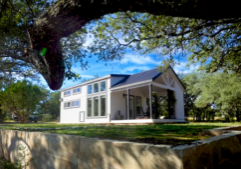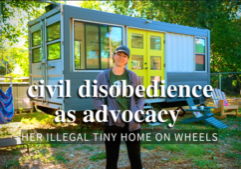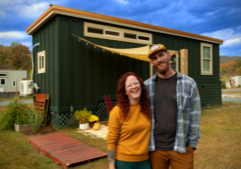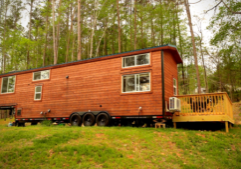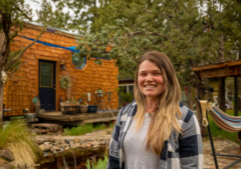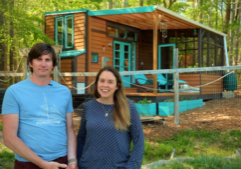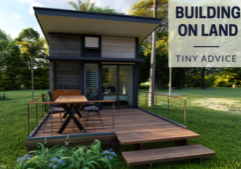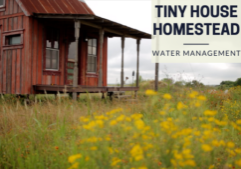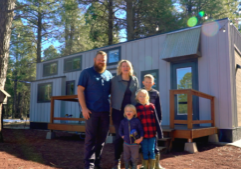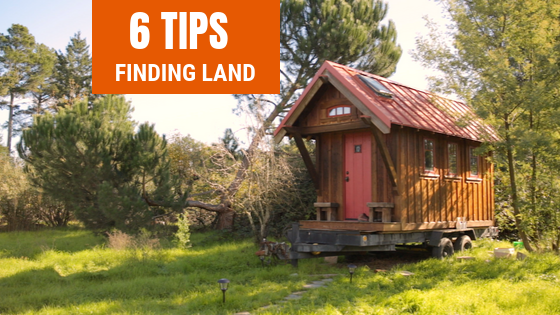
6 Amazing Tips for Buying Land
There's more to buying land then just location. If you're looking for the perfect place to place your tiny house, then check out these tips for buying land.
Looking for your dream home? The little house on the prairie with big windows and a vegetable garden that you’ve dreamt about since you were young.
The problem is that you can look and look, but you’ll probably never find the exact home you’ve always wanted. Sure, you could settle and shell out hundreds of thousands of dollars for a home on land you don’t actually want.
But you’ve got a better idea, and we’re here to help. You’re thinking of buying a piece of land and building your dream tiny home from the bottom up. Literally.
You shouldn’t go into the land market blind, though. We’ve got some helpful tips for buying land that everyone in the market should know about before taking the plunge.
Whether you’re thinking about building up your dream tiny home, starting a new business, or even herding cows, these tips could save you buckets of moo-la. Read on.
-
Know How Big an Acre Is
Before you go shopping for a big piece of land, it’s important to know how much acreage you’re going to need. If you’re looking for your dream homestead, the acreage is just going to be about how much room you want to have to roam around, but if you’re buying land for commercial property purposes, you’ll need to consider things like parking lot space and pesky government regulations.
Before you can know how many acres you want, you first have to know how big an acre actually is. Let’s be honest, we don’t often talk in terms of acres.
An acre is exactly 43,560 ft.². Even if your old country folk, this probably still doesn’t mean much. To put it into perspective, one acre is about the size of 1 1/3 football fields.
So the real question you should be thinking to yourself is, “how many football fields do I need?”
-
Research Extreme Weather Patterns
As simple as this sounds, most people overlook this stuff. It’s important to research extreme weather patterns for the area you’re considering purchasing land in.
Why? Aside from the glaringly obvious fact that you don’t want a hurricane to wipe out your brand new dream tiny home, you’ll want to consider things like the cost of insurance.
Whether it’s a home or a business, insurance is going to significantly increase in an area that has a lot of extreme weather. That’s hurricane insurance for properties in Florida or the Carolinas, tornado coverages for land in tornado alley, and even snowstorm coverage in northern areas.
If you think the area you’re shopping in is pretty safe as far as extreme weather, you should still look into whether the area floods often or not. In some low-lying lands, all it takes is a small rainstorm to turn the place into a lake.
-
Avoid Loans
When you’re buying a traditional house, it’s easy to get a homeowner's loan. There are all sorts of loans available for first-time homeowners, low-income homeowners, veteran homeowners, etc. But, buying vacant land is a whole different ballgame.
Banks and other lenders don’t often offer loans for vacant lots. This is because, at the time of the loan, there is no collateral (i.e. a house) for the lender to foreclose on if the loan isn’t paid on time.
In the event that you do find someone willing to give you a loan, the interest rate will likely be exceptionally high.
For this reason, most people in the market for land will have to pay with cash. If you’re unable to purchase your land with cash, be sure to at least have a substantial down payment to soften the blow of the crazy interest rates.
-
Don’t Skip Environmental Tests
Never skip over environmental testing. It might seem like an unnecessary step because what could possibly in the land that’s such a big deal? Especially to shell out all this extra cash for expensive tests when you’re already breaking the bank for the land itself.
Environmental testing is important because some contaminants are poisonous, both to people and plant life.
For example, if the property used to be owned by a mechanic, there is likely a chance that contaminated oil has found its way into the ground. This could kill your vegetable garden faster than the tomatoes could ever grow.
-
Get Liability Insurance
You might think that since you haven’t started building or haven’t even cleared out the land yet, that you don’t need liability insurance.
Liability insurance is important because if someone is hurt or doing anything illegal on the property, even if you aren’t living there yet, you’re still responsible.
Think of a scenario where you will purchase a couple of acres of land and haven’t cleared out the woods yet. You might have some hunters illegally using the land outside of hunting season. If these people are caught you are now liable for their transgressions.
-
Consider Legal Help for Big Purchases
If you’re thinking of purchasing land for commercial developmental reasons, it might be in your best interest to hire a lawyer.
Hiring a lawyer for commercial property purchase decisions will help you to reduce your risk of zoning issues, previous liens, and other potential problems. It’s, of course, going to be another financial strain, but in this case, it’s completely worth it to take all the steps.
Follow These Tips for Buying Land
Finding the perfect piece of property is definitely easier if you follow these helpful tips for buying land. Always make sure you take your time and don’t rush into anything that isn’t right for you.
For more helpful tips on finding land and creating homestead or tiny house community, browse through our blog.

